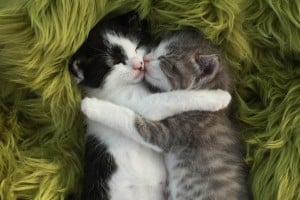It’s common knowledge that leaving your pet in a hot car is asking for trouble – both for your pet and for yourself! The temperature rises rapidly and can kill in a very short time. It’s not so common knowledge though, that many of the patients veterinary professionals see for heat stress and heat stroke are seen in spring or early summer. Why is that?
Well the simple answer is that temperatures often change suddenly from cool, dry winter weather to sudden hot, humid days in spring. It’s the sudden change that often knocks susceptible animals for a six simply because they have not had a chance to acclimatise.
So which animals are more susceptible?
- They very young or the very old – both these groups are unable to regulate their body temperatures as easily as young healthy adult animals
- The unwell – an animal with a fever in hot humid weather is going suffer the effects of heat stress far more quickly than that same animal in a comfortably climate controlled environment.
- Short-nosed breeds – dogs and cats regulate their temperature by sweating through their paws and panting. Those that have short noses e.g. Bull dogs and Persian cats, are less well equipped to rid their bodies of excess heat by panting.
- The over-weight – those pets that are over weight have a thick layer of insulating fat which means that when their core body temperature rises, it takes much longer and much more effort to cool down again.
So what can you do to help your pet?
- Do not leave them unattended in a car!
- Provide cool clean water in several areas that you pet has access to all day – consider that some bowls may heat up if the sun reaches them at different times of the day.
- Ensure your pet has access to a cool shady area.
- Provide a shallow swimming bowl/ kiddies pool with 3cm of water in the bottom for them to cool off in – do not leave puppies or kittens unsupervised with this as they can drown in a very small volume of water.
- Do not go for walks at the hottest time of the day.
- If you have an elderly pet, an unwell pet or a susceptible breed, keep them in an air-conditioned environment if you know it is going to be particularly hot.
Have a read of our next post: Heat Stress – What Does It Look Like for more information about the clinical signs and treatments.
For more information please ring 0481 527 678 or email vet@healthypetmobilevet.com.au – we’ll be happy to discuss any issues with you!

